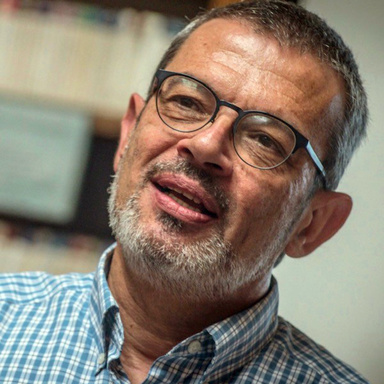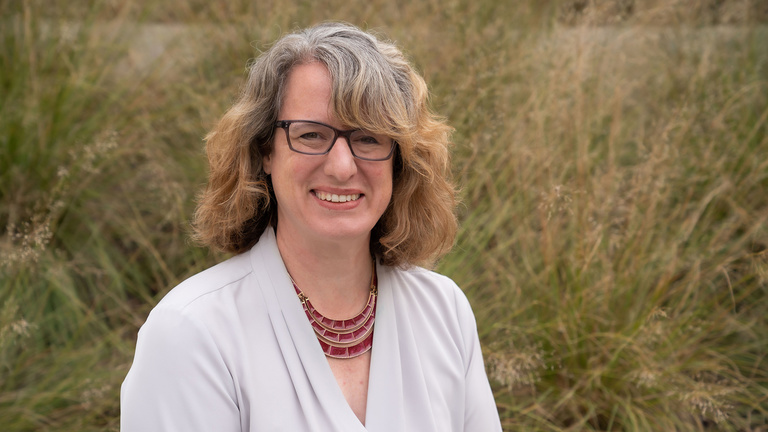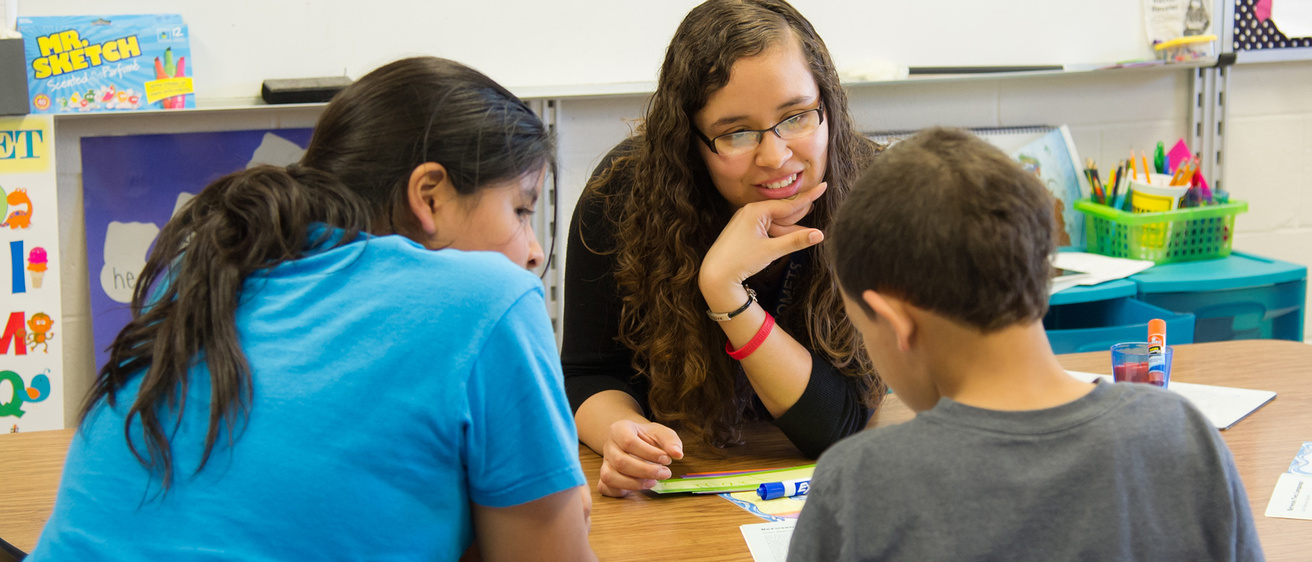Two Obermann Center–affiliated scholars have been awarded one of the largest amounts ever granted to a humanities project at the University of Iowa. Aron Aji, director of the MFA in Literary Translation, and Pam Wesely, an associate dean in the College of Education and professor of multilingual education, are the PIs for a Department of Education grant that totals more than $1 million. Aji co-directs the Obermann Working Group Translation across the Humanities and Wesely was a 2018 Fellow-in-Residence.
The four-year grant will allow the UI to launch a new National Resource Center (NRC) to advance translation and global literacy skills for K-16 students and educators, graduate students, and established scholars. It joins an elite group of NRCs at universities across the country and becomes the only one focused on translation. NRCs are language and area or international studies centers that serve as national resources for teaching any modern foreign language.
Building on long-term strengths

Given its storied history in the literary arts, the University of Iowa is a natural place for the center. The Iowa Translation Workshop, the country's first translation workshop in a university setting, was founded in 1963. Ten years later, the MFA in Literary Translation was founded. And just this fall, the University of Iowa became only the second university in the country to offer an undergraduate major in translation.
Aji notes that in other parts of the country and world, the University of Iowa is viewed as the gold standard for translation programs. The award solidifies this reputation. “The work of this center is for the nation,” he says.
The new NRC is intended to extend the UI’s reach beyond literary translation. Its four key aims are to:
- promote translation and global literacy across the University of Iowa,
- support faculty development and research,
- promote translation and global literacy among educators at all levels, and
- create a research hub and resource library for public use.
A growing career sector
In a globally interconnected world, translation and interpretation are more important than ever. Language mediation is among the ten fastest growing career sectors. According to the U.S. Bureau of Labor Statistics, employment of interpreters and translators is projected to grow 24 percent in the next decade. Aji notes that in Europe, translation is a career for which people study and prepare as undergraduates. In the U.S., however, it is an afterthought—often work that people do on the side. He views the U.S. as being behind the curve in terms of valuing this skill and career path. The UI’s new BA in translation is one way to rectify that, as is better incorporating translation into a wide range of courses.

Familiarity with translation skills provides career options that extend far beyond literary translation. The path of Cedar Rapids native Laura Ying Wang—the first student to graduate with the Translation for Global Literacy minor at the University of Iowa—proves that. Wang became interested in translation early in college as a double-major in Creative Writing and Chinese. “My translation classes combined so much of what I loved,” she says. “They required close reading and literary analysis, creative writing, and deep understanding of another culture and language.”
After teaching English in Taiwan on a Fulbright scholarship, she is now a second-year law student at the University of Southern California. She hopes to work in legal reform while providing pro bono services to Mandarin speakers. Wang sees translation as an imperative skill for her field: “Making the effort to understand who my clients are and where they come from are prerequisites for me to properly represent them and their interests.”
Global literacy as a life skill
The way in which Wang is carrying her translation skills into her legal career goes to the heart of one of the NRC’s aims, which Aji describes as “to encourage students who are interested in becoming invested in a global society to gain literacies by practicing translation.” Global literacy is also an area of great importance to the UI’s College of Education. Pam Wesely, Aji's co-PI and author of Words and Actions: Teaching Language through the Lens of Social Justice (ACTFL, 2018), says there is a need for educators, parents, and students to better understand translation as a skill related to equity and inclusion.

“There probably isn’t a district in the state that doesn’t have some English language learners,” says Wesely. Larger school districts in Iowa are tasked with providing instruction and materials to students whose first language may be Spanish, Serbo-Croatian, Arabic, Lao, or Swahili. The Iowa City School District, for example, has neary 2,000 English language learners who represent 70 different languages and dialects.
Wesely wants districts to move beyond merely translating materials toward viewing translation as an opportunity to make connections with families. “English language learner education is often of the mindset that ‘Oh, you don’t have English; we have to give it to you.’ Instead, we should promote the idea that multilingual students have additional skills and opportunities.”
College of Education will develop workshops for Iowa’s schools
Celebrating the power of being multilingual is central to the NRC’s proposed work. During the four years of the grant, the College of Education will develop and present a series of workshops for educators and students related to translation. Workshops for multilingual high school students will encourage those students to value translation as a unique and advantageous skill set, while other workshops will be geared toward world language teachers, school counselors, and people who perform translation and interpretation for school districts (usually without training).
Both Aji and Wesley are passionate about the social justice aspects of translation. Wesley notes, “We can’t say we’re treating students equitably if we can speak to some students and families easily and others not at all.” How, the scholars ask, can we make classrooms more inclusive for speakers of multiple languages, no matter what an instructor’s language skills may be beyond English?
Role of Obermann Working Group
Instrumental to Aji’s belief in the project of attaining an NRC has been the Obermann Working Group Translation across the Humanities, which he co-directs with Morten Schlütter (Religious Studies). The grant asked for examples of ongoing dedication to translation from across campus. Now in its seventh year, the Working Group’s interdisciplinary nature–it has members from classics, philosophy, the languages, and more–and its robust intellectual approach to discovery in the field of translation were important points in the grant application.
The NRC will include an online library of resources for educators and students of all levels of translation. The grant also supports an annual symposium about translation. Aji believes the Obermann Working Group will be central to both initiatives. “Continuing to discover and disseminate information is central to the NRC’s work,” says Aji.
This is the second Obermann Working Group whose members have recently procured a large grant for the University of Iowa. In 2020, Brian Ekdale was awarded a grant of more than $1 million from the U.S. Department of Defense to study social media algorithms and biases. The grant grew out of a Working Group on the same topic and includes key members.
See also: "UI and Iowa City schools address massive growth in English-language learners," The Daily Iowan, February 28, 2020.
